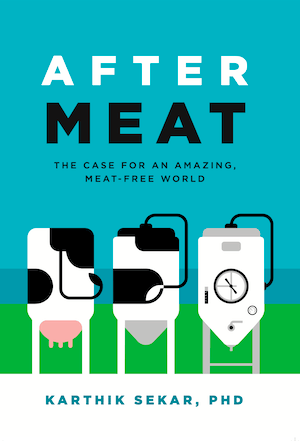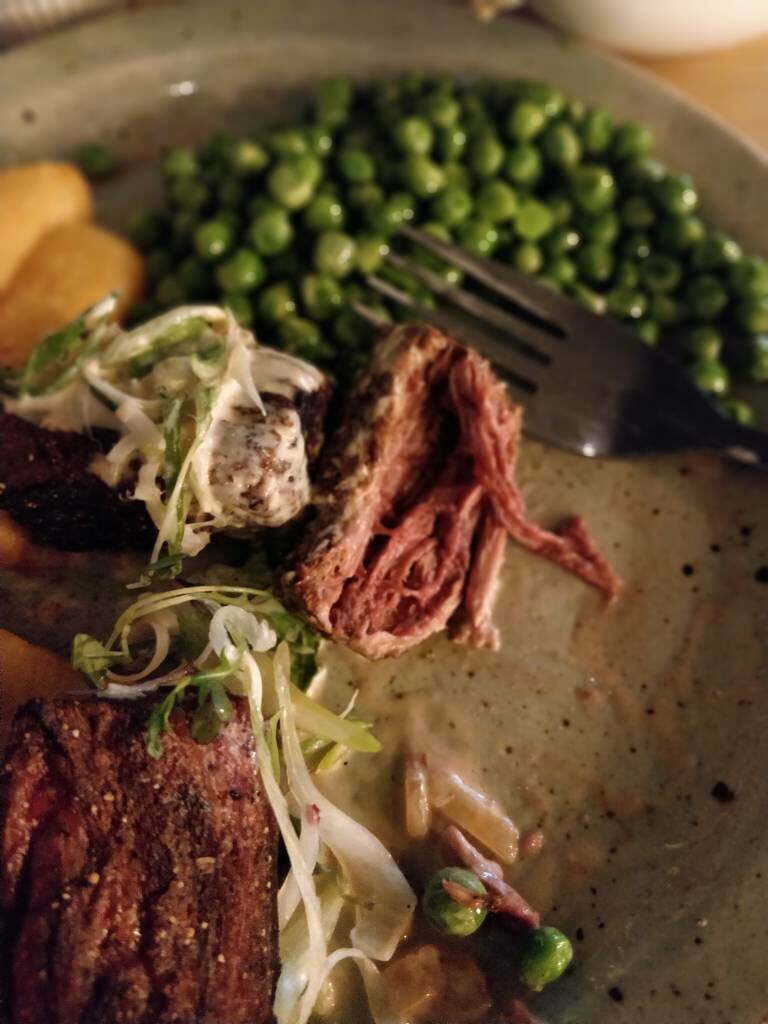Book Review: After Meat - The Case for an Amazing, Meat-Free World by Karthik Sekar
 This self-published book is a bit of a mixed bag. There has been a lot of thought put into it but, in the process of explaining the author's theories, they've forgotten that brevity makes a book like this readable and enjoyable.
This self-published book is a bit of a mixed bag. There has been a lot of thought put into it but, in the process of explaining the author's theories, they've forgotten that brevity makes a book like this readable and enjoyable.
It could really have done with a strong editor to tighten things up. The first two chapters are filler. There's a mini introduction to evolution and the basics of the theory of knowledge. I'm not really sure what they're doing there. It seems to be an attempt by the author to prove that he knows what he's talking about. While a short lesson in thermodynamics may be useful, it's just overkill here. The start of chapter three is in thrall to the Cult of St Jobs of Apple, but then finally starts talking about food production. Which is where things get interesting.
The book takes a long time to get to its central point - raising and slaughtering animals for meat is inefficient. It's a poor use of energy, water, crops, and space. We should be able to do better.
But then the book goes a bit off-piste. It returns to a graduate level intro to synthetic biology and modern day genetic manipulation. Again, interesting up to a point, but goes too far into the weeds for a book for the general public. There are some weird and inappropriate comments scattered through the chapters - he casually dismisses the concerns GMO opponents have about proprietary and secretive practices without ever acknowledging them. Similarly, he unfairly lumps vegans in with antivaxers. Despite hundreds of citations throughout the book, there's no footnote for that!
Then there's a bizarre section on meditation. I sort of get the tie in to hedonism and desires but again feels like a brain dump of padding out content.
Finally, we get an excellent chapter on "beyond food". He raises some interesting and exciting questions about the limits of our culinary imaginations. Why are we recreating burgers and steak when we could be making something better?
Annoyingly, it only lightly touches on the history of meat-replacement technology. For example, there's a paragraph about the technology behind Quorn - but nothing about how the population boom in the mid-20th century led to fears of mass starvation.
Can we "3D print" something similar to steak? Can we genetically engineer yeast to produce protiens similar to cheese? This book makes a powerful argument that the tech is nearly here and that it is a moral necessity.
I've been a vegetarian since the turn of the century - and I've tried loads of "meat substitutes". A Quorn burger, once drenched in ketchup, mustard, and pickles, doesn't taste any different from a beef burger. I've eaten the Beyond Meat burgers and, again, they're hardly any different from the existing veggie-burgers.
I get the need to make food for efficiently. And for new flavours, better textures, and more nutrition. The book does a reasonable job for explaining how we're going to get there. We're moving to a world where Synthetarianism is becoming mainstream. This raises interesting ethical questions. Sadly, the book doesn't touch on the ethics of this.
Reduction of meat consumption is probably necessary for our future on this planet - and our eventual off-world adventures. Once you get into this book, there are some excellent ideas and some fascinating science - but you'll need to skim through a lot before you reach the payoff.
Thanks to BookSirens for the review copy.
| Verdict |
|---|
- Buy the eBook on Amazon Kindle
- Get the paper book from Hive
- Author's homepage
- Publisher's details
- Borrow from your local library
- ISBN: 9780578977379




What links here from around this blog?